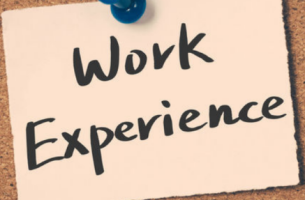
Kerry O'Neill
Jan 20, 2020
Company Culture: How to identify a good fit for you?
Want to know what a prospective employer’s company culture is like?
You can put this question to your interviewer, but honestly a company culture can be hard to sum up in a single sentence. If you come straight out and ask “What’s your company culture like?” you may simply get the answer the person thinks you want to hear. A few years ago, I made the mistake of not doing my research, taking a job in a large firm without doing any digging into their culture at all. My gut feeling at interview was that they were reserved & un-forthcoming, but due to personal circumstances I took the position they offered anyway. I turned up on my first day to find 100+ people working in complete & utter silence (in an open-plan office). The fact that I had to ask where the toilets were did not augur well for my new employer either and within the first hour I was shouted at by a cleaner for inadvertently locking her out! Unsurprisingly, it was an office I didn't enjoy working in all that much… So how can you find out about company culture? There are a number of questions you can ask in your interview that can help you get a feel for a company’s personality. Here are our question suggestions you might ask:
1. How long have you been with the company?
As long as it’s not a start-up, expanding rapidly or a newly established department, this is a great question to ask your interviewer. If everyone you meet has only been there for a short time, it’s probably wise to probe further as to the reasons behind it. High turnover can be an indication of low pay, long hours or lack of opportunities for career progression.
2. What’s the dress code?
Companies with a loose what-to-wear policy are often less traditional than those that demand full business attire. Certainly, traditional businesses are much less likely to allow pets from home into the office or provide nice-to-have perks such as a beer fridge or nap room.
Be careful though, just because a workplace has a relaxed dress-code it doesn’t mean it’s not a highly stressed place to work in. However, questions like this only provide clues as to what the working environment is like, rather than painting a complete picture.
3. What activities do you offer employees?
If a company organises company outings, pub quiz teams or other planned social events it can give you an idea of how important the business thinks it is for colleagues to like each other, not just work together. Questions like this can also help you understand if the workplace is team-orientated or more individualistic, as well as a sense of what the working environment is like in general.
Everyone is different, and for some that kind of togetherness is not for them. If the thought of socialising with your co-workers fills you with dread, then perhaps you’d be better looking for an employer with more of a 9-5 environment.
4. How many of the current team members work on a flexible basis?
If flexible working is high on your agenda, avoid asking “Can I work flexible hours?” in your interview and ask if other employees already do it instead.
If no-one is working on a flexi-time basis already then if you make a request for an alternative working arrangement this may be met with little enthusiasm, whereas if you know that there are lots of employees with flexible schedules then you’ll get an idea of the organisation’s work-life balance.
5. How do you measure success and over what time frame?
Before you accept any job offer you need to know that your prospective boss’s expectations are realistic with respect to what you can accomplish and in what timescale. No matter how great a job offer appears, if you can’t deliver the results expected, you’ll fail. So, if you feel the bar is set outrageously high and you won’t have enough time to get up to speed, make sure you think carefully before accepting the offer without further discussion.
6. How and when is feedback given?
Is this a company that follows a bi-annual or annual review regime still or have they switched to a more regular model on a quarterly / monthly basis? This lets you know how much of a priority feedback is and provides you with hints into career development opportunities, particularly if these are tied to performance.
7. What does a typical career path look like for someone in this position?
This question will allow you to get an idea of what opportunities are on offer as well as understanding what a long-term career could look like. Listen out for pointers on how people gain promotion, timelines, requirements etc. Is it a highly competitive process? Are promotions only for upward steps or do they encourage sideways moves too?
8. Would you be able to show me around the office?
Taking a walk around the workplace is the best way to get a good feel for a company’s day-to-day atmosphere. Do the employees look stressed? Are they talking to each other? Have people personalised their workspaces? Are managers in individual offices or on a different floor?
A lot of companies have removed private offices in favour of open-plan spaces throughout. Some people enjoy working in this type of environment but if you prefer a quiet working office it may not be for you. If they refuse your request to look around, you might start to wonder what’s on the other side of that door…
One last tip:
The most important thing is to note how your interviewer/s answer your questions. Are they happy to give more detail or are they hesitant? Do they answer in-depth or only provide short, curt answers without much detail? Remember to do your research if you feel you need more background before making the leap. All in all though, don’t forget that company culture is personal, there’s no right or wrong, only what suits you & your values.
Interested to know more about what prospective employers do to ascertain potential employees' culture fit? Why not read our blog "The Latest Advice on Culture Fit" here.


